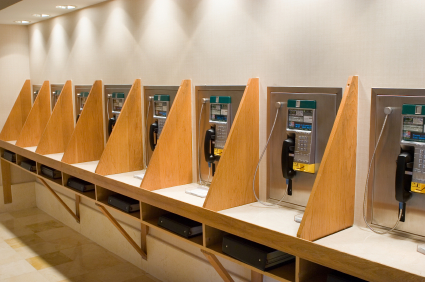
FCC seeks public comment as it considers new regulations.
While regular phone communication between prisoners and family members can ease “reintegration of inmates into society upon release from prison,” the current costs of interstate phone calls from prison can be so costly that they are prohibitively expensive for inmates and their families.
In response to petitions calling for the federal government to regulate rates for interstate telephone calls by inmates at state prisons, the Federal Communications Commission (FCC) recently published a notice seeking public comment on “how to ensure just and reasonable rates” for these calls.
Currently, the FCC does not regulate rates for “interstate interexchange inmate calling services” (ICS), the interstate calling services available to prison inmates. However, the FCC’s notice indicates that, following a decade of debate on the issue, the Commission may begin to regulate these rates to address a “wide disparity” between states. The range of rates can be quite dramatic—for instance, a fifteen-minute interstate call can cost $2.05 from a prison in Montana but $16.55 from a prison in Idaho.
Some reports indicate that current ICS rates can exceed fifteen times the standard industry rates for interstate calls outside of prison. Two petitions for rulemaking, one filed in 2003 and the other in 2007, asked the FCC to ensure that ICS rates comply with a federal law that outlaws “unjust or unreasonable” charges for interstate and foreign communications. The Commission has also received complaints from “tens of thousands of consumers” regarding high ICS rates.
The FCC notes some observers’ arguments that high ICS rates implicate “public interest concerns” because they decrease inmates’ ability to communicate with family members. In particular, the FCC cites one Government Accountability Office (GAO) report finding that inmates’ consistent communication with family members helps former inmates reintegrate into society, leading the FCC to note that this communication may reduce recidivism. The FCC also states that as prison populations grow, regular telephone contact with family may help alleviate difficulties for visiting family members in overcrowded prisons. Overall, the Commission concludes “that regular telephone contact between inmates and their families is an important public policy matter.”
Standard inmate calling services permit inmates to make either collect calls, which are charged to the recipient, or debit-based calls, which are charged to the prisoner. While debit-based and collect calls generally incur per-minute charges, collect calls also incur a call set-up fee. Charges for inmate calls can differ significantly across facilities, with set-up fees ranging from $0.50 to $3.95 and per-minute charges ranging from $0.05 to $0.89.
The FCC suggests a number of potential explanations for high ICS rates and disparities between states. First, contracts between prison facilities and ICS providers are often exclusive for each facility, leaving inmates with no alternative options. Second, states have different security requirements that ICS providers are required to adopt, which may result in higher costs to the providers. Finally, some states require ICS providers to pay site commissions that add charges on top of call rates. According to one prisoners’ rights group, some states continue to earn significant revenues from these commissions while other states have banned such commissions in recent years.
The Commission acknowledges that regulation of interstate ICS will affect only a “relatively small subset” of inmate telephone calls. States regulate local and intrastate ICS rates, and the Federal Bureau of Prisons establishes ICS rates for federal prisons. The FCC nonetheless maintains that regulation of interstate call rates could significantly affect the cost of inmates’ communication with family members because interstate calls tend to be the most expensive.
In its notice, the FCC seeks comment on possible regulatory alternatives, including implementing rate caps, banning per-call charges, allowing market forces to dictate ICS rates, or offering inmates some number of free calling minutes per month.
The FCC is accepting public comments until March 25, 2013.



